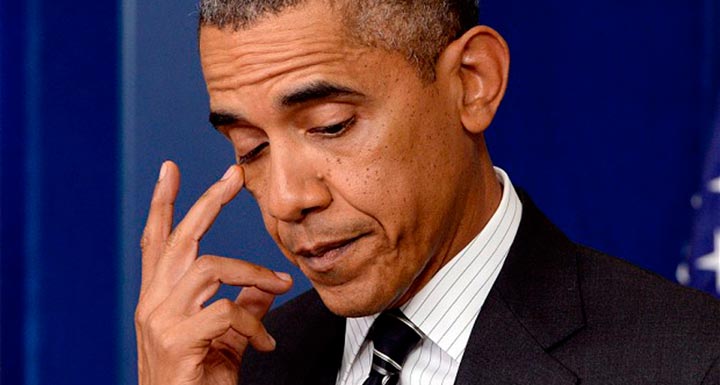
Get Cuba off the list
During the Cold War, Cuba’s decision to send its armed forces to Africa to support newly independent governments and movements fighting apartheid was used by the Reagan administration in 1982 to help justify putting Cuba on the U.S. State Sponsors of Terrorism list.
This false designation stigmatizes Cuba today and exacts an increasingly hard toll on its citizens and its ability to conduct commerce abroad.
Now that Cuba has returned to Africa three decades later with an “army of white robes” comprised of doctors and nurses fighting Ebola in Sierra Leone and heading to Liberia and Guinea, this is a teachable moment for the world to see what Cuba can do.
But, Cuba’s intervention against Ebola can also be a transformative moment for President Obama, if he uses it to redeem and reform U.S. policy toward Cuba.
When President Obama attended his first meeting of the Summit of the Americas, hosted by Trinidad and Tobago in 2009, Scott Wilson of the Washington Post asked him two questions at the final press conference of the event.
“What have you learned over two days of listening to leaders here about how U.S. policy is perceived in the region? And can you name a specific policy that you will change as a result of what you’ve heard?”
Although the President’s answer said nothing about how he’d change U.S. policy, he talked unexpectedly about Cuba’s medical internationalism:
“One thing that I thought was interesting — and I knew this in a more abstract way but it was interesting in very specific terms — hearing from these leaders who when they spoke about Cuba talked very specifically about the thousands of doctors from Cuba that are dispersed all throughout the region, and upon which many of these countries heavily depend.”
If the President did not know then about Cuba’s broad commitment to send doctors and other health professionals to help other nations respond to crises or provide health care to people in the developing world, many of whom never met a doctor before a Cuban physician showed up, he surely knows now.
As the BBC reported this week, “Cuba is now the biggest single provider of healthcare workers to the Ebola crisis in West Africa, more than the Red Cross or richer nations.” But, it’s not just Africa and Ebola. There are 50,731 Cuban medical personnel working in 66 countries — as John Kirk says, “more than those deployed by the G7 countries combined.”
Cuba can send well-trained doctors and health professionals who have volunteered for the Ebola mission because it has a vast system of medical education and the capacity to dispatch teams of doctors from its Henry Reeve Brigade for service abroad in the event of natural disasters.
The Henry Reeve Brigade was formed in 2005, as the Center for International Policy reported here, with the intention of sending 1,600 medical professionals to assist during the aftermath of Hurricane Katrina, but the offer was declined – then ridiculed – by the United States.
Soon after, Emilio González, who the Wall Street Journal identified as a staunchly anti-Castro exile, launched a plan to undermine Cuba’s deployment of doctors overseas. González, director of the U.S. Citizen & Immigration Services from 2006 to 2008, infamously called Cuba’s medical internationalism policy “state-sponsored human trafficking.”
Rolled out by the Bush administration in 2006, the “Cuban Medical Professional Parole Program” lures Cuban medical personnel off their posts by making them eligible for special immigration rights simply by presenting themselves at U.S. diplomatic posts abroad.
As Greg Grandin noted recently in The Nation, President Obama has left this cynical policy in place, defended by cynics like Rep. Ileana Ros-Lehtinen and others in Congress. It really needs to be terminated.
But, when the President attends his last Summit of the Americas next year, it would be good, but not nearly sufficient, for him to answer Scott Wilson’s question from 2009 by saying, “yes, one policy I would change is repealing that program that steals Cuban doctors from their posts in the world’s poorest countries.” The moment is demanding more from his leadership.
At a time when Cuban doctors are performing one of the great humanitarian missions of our day, when the UN General Assembly is about to condemn the U.S. embargo for the 23rdtime and when public opinion – across the U.S. and within the Cuban diaspora – favors major changes in the policy as never before, the President has ample political space to do a lot more.
He has the authority to end most travel restrictions, remove Cuba from the terror list, and modernize trade and other policies, without risking the threat of political backlash that immobilized U.S. presidents in the past.
Steps like these would open the way for real dialogue with Cuba’s government, help reset our relations with the region and global community, and offer President Obama a meaningful foreign policy legacy. As his days in office dwindle down, it’s hard to imagine he’ll be offered a better time to act.
Join our friends at LAWG by signing their petition to get off Cuba off the list.
(From Cuba Central)

